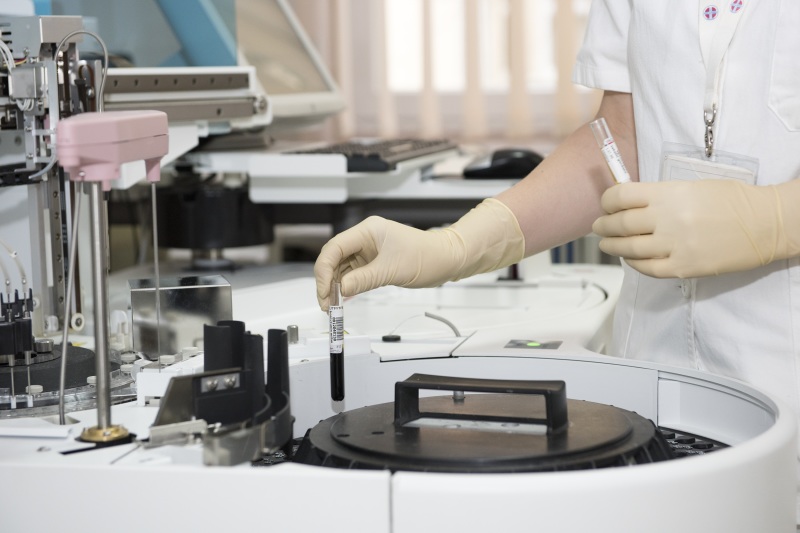
Americans are wary of technologies that aim to edit genes to make babies less vulnerable to diseases, implant brain chips to sharpen minds, and develop synthetic blood to increase physical strength, according to a new Pew Research study.
The survey, conducted on about 4,700 US adults, found that Americans in general perceive scientific innovation as helpful to society, but are more worried than happy about the prospect of technology-enabled "human enhancement."
About 68 percent of Americans are worried more than being "excited" about gene editing, some 69 percent are against brain chip implantation, and 63 percent are opposed synthetic blood transfusion for increasing strength.
Religious people were more concerned about attempts to make human beings "better." Those people who attended church frequently were most likely to disapprove of the three major areas of technology seeking to modulate the constitution of man: gene editing, brain chip implants, and artificial blood. Christians who were low on religious commitment saw these scientific advancements as just another human effort to improve themselves.
About 6 in 10 highly religious Americans say that using technology to edit genes, implant brain chips, and use synthetic blood is crossing a line not to be crossed. 5 in 10 Americans with medium level of religious commitment hold the same view. However, Americans who are least religious were more likely to accept these technologies as appropriate. Only 36 percent of the people with low-commitment to religion objected to brain chip implants to improve cognitive abilities and the use of synthetic blood to improve physical strength, and 28 percent of them opposed editing genes to create babies free of diseases.
Among Christians, opinions on gene editing varied by denomination. White evangelical Protestants (65 percent) were most against the idea of having the genes of their baby edited to reduce risk of diseases. Only 49 percent of white mainline Protestants and 54 percent black Protestants opposed gene editing.
About 48 percent of white Catholics and 49 percent of Hispanic Catholics favored gene editing of babies.
As many as 75 percent of atheists and 67 percent of agnostics approved the idea of editing gene editing.
Among all US adults, 28 percent thought that gene editing of healthy babies to reduce their risk of serious diseases was morally acceptable, and 30 percent said it was not. About 40 percent of Americans were not sure.
Brain chip implants were also perceived negatively by Christians. A majority of 79 percent of white evangelical Protestants, 70 percent of white Catholics, and 69 percent of black Protestants are against implants for improvement of cognitive abilities.
On the other hand, 58 percent of atheists and 48 percent of agnostics approve of using computer chip in their brain to increase smartness.
Americans in general are more divided on the issue. About 51 percent said that implantation of chip in brain to improve cognitive skills is crossing the line, while 46 percent thought that this technology is not different than other innovations for betterment of mankind.
Most American Christians are opposed to the idea of synthetic blood transfusion to improve strength, stamina, and speed. About 72 percent of white evangelicals, 68 percent of white mainline protestants, 66 percent of black Protestants, 68 percent of white Catholics, and 57 percent of Hispanic Catholics oppose synthetic blood transfusions.
Again, atheists (54 percent) and agnostics (45 percent) were more likely to approve blood transfusion for increasing physical strength.
American people were evenly split on the morality of using artificial blood. Some 48 percent thought blood transfusion for increased strength was as innocuous as other technological advances for improvement of human life, while 49 percent said this is going too far.
Mainline Protestant denominations were less likely to raise opposition to enhancement, according to Ronald Cole-Turner of Pittsburgh Theological Seminary.
"I see no clear expression of opposition coming from any of the [mainline] denominations over this, because they will not view it as threatening," he said.
Professor at Pacific Lutheran Theological Seminary in California, Ted Peters, said that mainline churches will perceive these innovations positively: "I think they will see much of this for what it is: an effort to take advantage of these new technologies to help improve human life."
However, Catholics and Evangelicals saw these new efforts as incongrous with God's will for the world.
Todd Daly of Urbana Theological Seminary said that evangelicals' position on human enhancement is partly based on man's tendency to "play God."
"When we attempt to be something more than human, are we running the risk of trying to become, in some ways, like God, as did Adam and Eve?" Daly said. "This is an important issue for Christians that, I think, will help drive the debate for us."
















